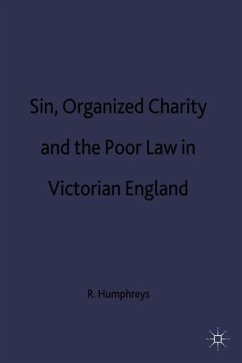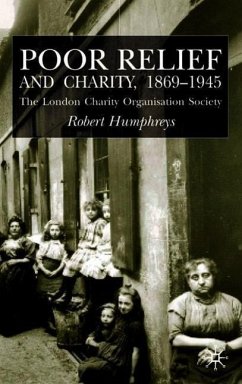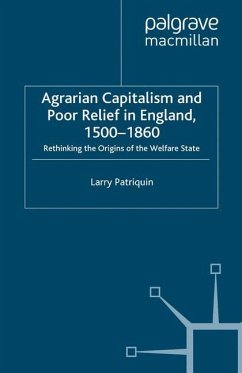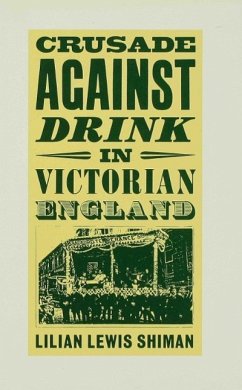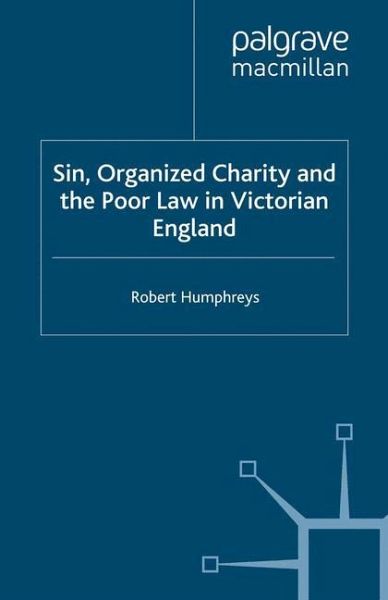
Sin, Organized Charity and the Poor Law in Victorian England
Versandkostenfrei!
Versandfertig in 6-10 Tagen
113,99 €
inkl. MwSt.
Weitere Ausgaben:

PAYBACK Punkte
57 °P sammeln!
Politicians, social administrators, economists, biographers and historians have shared the belief that the Charity Organisation Society effectively rationalised relief to the Victorian poor and illustrated the advantages of caring voluntarism over impersonal state handouts. It is now clear that in provincial England these impressions were illusory. The alleged sinful profligacy of other charitable bodies was persistently condemned by the Charity Organisation Society for fostering latant sin amongst the poor. By exposing how they failed in practice to satisfy their own prescriptions for appropr...
Politicians, social administrators, economists, biographers and historians have shared the belief that the Charity Organisation Society effectively rationalised relief to the Victorian poor and illustrated the advantages of caring voluntarism over impersonal state handouts. It is now clear that in provincial England these impressions were illusory. The alleged sinful profligacy of other charitable bodies was persistently condemned by the Charity Organisation Society for fostering latant sin amongst the poor. By exposing how they failed in practice to satisfy their own prescriptions for appropriate poor relief this volume asks whether the Charity Organisation Society were themselves morally equipped to castigate others about sin.





